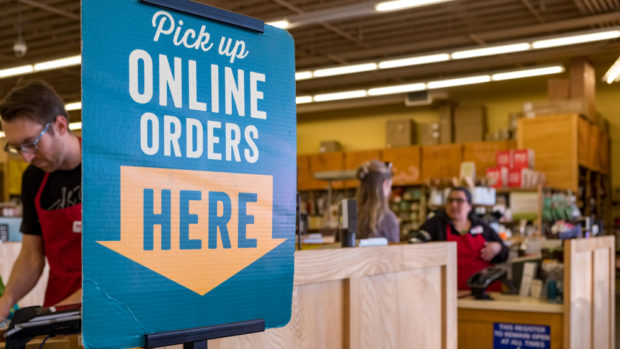
Opening a retail shop goes beyond a mere business venture—it’s an opportunity for creative minds to bring their vision to life while making a distinctive contribution to their communities. From handmade goods and custom home decor to thoughtfully curated fashion, independent retailers have a wealth of opportunities to explore. It’s no wonder that 38% of Britons surveyed by Faire aspire to launch their own unique retail businesses in the future.
However, while the idea of stepping behind the counter and turning dreams into reality is alluring, the obstacles that come with it are equally daunting. A fiercely competitive retail landscape, economic instability, and rising living costs pose significant challenges for those looking to establish their own shops.
Overcoming the Challenges: The Path to Opening Day
Securing financing is one of the most formidable hurdles for aspiring shopkeepers. Many small and medium-sized businesses (SMBs) find themselves underbanked or entirely without banking support, making it difficult to access the capital needed to launch their operations. This financial shortfall is particularly concerning when it comes to stocking initial inventory, which often constitutes up to 50% of a new retailer’s startup expenses—alongside other critical costs like renovations, equipment, and marketing.
We hear from our retailers that traditional lenders and banks are frequently hesitant to extend loans to new businesses lacking an established track record. While the recent marginal reduction in the Bank of England’s base interest rate offers some relief, obtaining financing remains a significant barrier, preventing many would-be retailers from getting started.
Even after securing the necessary funding, independent retailers face numerous operational challenges before they can open their doors. Securing a prime location with adequate footfall and a favourable lease is crucial, as is transforming the space into an attractive and functional retail environment that draws customers away from online shopping and into the physical store. Investments in renovations, furnishings, and store layout are essential, along with hiring the right team, setting up payroll systems, and ensuring compliance with employment regulations—all of which are critical to a successful launch.
Innovative Approaches to Financial Challenges
Given these considerable obstacles, how can independent retailers bridge the financial gap? One effective strategy is to explore alternative, reputable sources of financing, such as partnerships with established wholesale suppliers. For example, the “Open With Faire” program offers up to £20,000 in inventory credit to retailers who sign up for net terms on the platform, with no interest or fees. This initiative illustrates how existing retail players can leverage innovative, tech-driven solutions—tapping into the growing embedded finance market—to help independent retailers overcome early hurdles and invest confidently in their businesses.
Independent retailers can also benefit from building strong relationships with local suppliers and working with local tradespeople, such as builders and designers, to manage renovation costs. Similarly, collaborating with other local businesses on joint marketing campaigns, pop-up events, or cross-promotions can help retailers reach new audiences without incurring significant additional expenses. These cooperative efforts not only foster a sense of community but also help alleviate financial pressures.
Once the shop is up and running, independent retailers can take advantage of various technological tools. AI-driven digital marketing tools can streamline social media and email campaign efforts, enabling retailers to reach a broader audience more efficiently. Additionally, investments in technology such as point of sale (POS) systems, inventory management software, and CRM platforms can boost operational efficiency and enhance customer engagement.
When it comes to technology, retailers can also extend their reach beyond the high street by utilising online platforms. Building a user-friendly website and engaging in e-commerce can unlock new revenue streams and provide customers with a convenient shopping experience. Implementing SEO strategies can improve online visibility, while engaging content and an active social media presence can drive traffic and sales—crucial elements for improving profitability.
Standing Out in a Competitive Marketplace
In addition to financial strategies, independent retailers must prioritise differentiation to succeed in a competitive market. Offering a unique product selection, delivering an outstanding customer experience, and maintaining a clear value proposition are all vital. Retailers should consistently reflect on the question, “What makes us indispensable?” to stay focused and relevant.
There are various ways to achieve differentiation. Curating exclusive or rare products, offering personalised customer service, and creating an engaging in-store ambience are effective methods to stand out from the competition.
Crafting a compelling brand story is another powerful tool for differentiation. Sharing the story of your business’s origins, the passion that drives you, and the values you uphold can create a deep connection with customers. This narrative can be communicated through your website, social media channels, and in-store displays, building a strong emotional bond with your audience.
A Promising Future for Those Who Get It Right
The path to opening a new shop is riddled with challenges, particularly in today’s financial environment. However, with strategic planning, a clear vision, and the smart application of technology and alternative financing solutions, independent retailers can navigate these barriers and lay the foundation for long-term success. Their close relationships with customers and deep understanding of their needs uniquely position them to offer the best retail experience.
The UK has long been celebrated for its vibrant high streets and exceptional shops, from bustling markets to unique boutiques. By overcoming the challenges and seizing the opportunities, new retailers can continue this tradition, not only fulfilling their own entrepreneurial ambitions but also contributing to the UK’s reputation as a centre of retail excellence.








Share